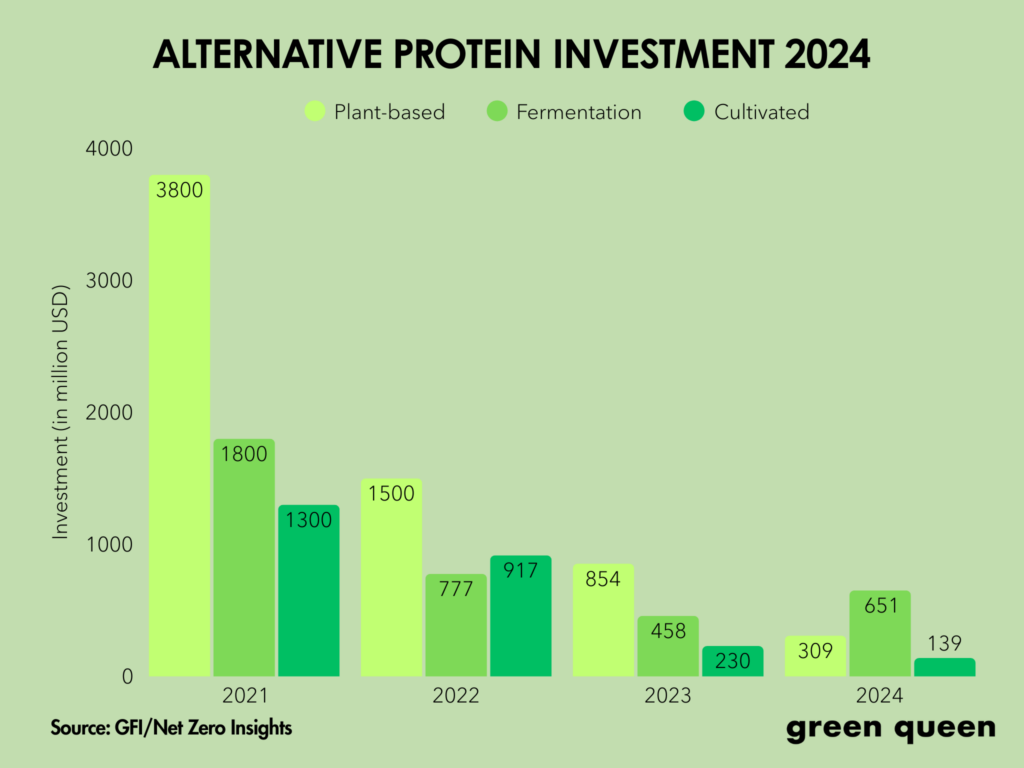
The co-founder of French plant-based chicken startup Swap (ex-Umiami) has been forced to step down as CEO amid weak sales, with the firm reportedly needing $10M by the end of this year.
Swap, the Parisian vegan chicken firm formerly known as Umiami, is reportedly in financial trouble amid the wider slowdown of the plant-based meat category.
According to French financial news outlet L’Informé, the startup is looking to renegotiate its debts with its creditors after recording a turnover of just €1M ($1.1M) in 2024 and running into issues scaling up production and delayed commercial development.
The troubles have led to co-founder Tristan Maurel stepping down as CEO, moving to the role of board chairman. He has been replaced by former Mondelēz and Pierre Martinet executive Hervé Salomon.
Swap, which has raised $107M since being founded in 2019, is reportedly in need of immediate funding to stay afloat. According to L’Informé, the company requires €9M ($10.2M) by year-end, and nearly €30M ($34.1M) by the end of 2026.
Swap’s bet on international expansion

Maurel, Clémence Pedraza and Martin Habfast founded the startup as Umiami, built on its ‘Umisation’ texturising platform for producing whole-muscle replicas of conventional fillets like chicken and fish.
This involves a technique that transforms plant proteins into structured fibres without high heat or pressure. The tech was touted as a key reason why the company was able to produce plant-based meat with a handful of ingredients; Swap’s chicken features eight ingredients and no artificial flavours, colourants or texturisers.
The firm opened a 14,000 sq m facility in the Alsace region last year, backed by a €38M ($41.3M) investment with support from local and federal governments. It says it can produce 7,500 tonnes of plant-based meat annually, eventually rising to 20,000 tonnes.
In October, the company rebranded to Swap and launched into the US foodservice sector, targeting flexitarians via Chicago restaurants like Spirit Elephant, Soul Veg City, Majani, and Clucker’s Charcoal Chicken.
The brand refresh was positioned as a call to action to encourage “consumers to make a positive choice for themselves and for the planet”, and allowed Swap to expand beyond chicken fillets to all kinds of meat and fish analogues, broadening its future product development plans.
In April, Swap teamed up with Spain’s Heura Foods to launch a whole-cut chicken breast in over 3,000 stores in France, Spain and Portugal, with each firm labelling it a “turning point” for its European ambitions.
Plant-based meat’s struggles continue

Despite these moves, Swap has not been immune to the larger headwinds of the alternative protein sector, especially in the US. Retail sales of plant-based meat fell by 7% in 2024, while in foodservice, these products have suffered a 10% annualised decline since 2022.
That has come amid a renewed appetite for meat, whose sales reached record highs in the US last year, compounded by growing consumer concerns about ultra-processed food. As a result, investors have remained cautious with their money, with financing in alternative protein startups falling by 27% in 2024. Plant-based startups were hit hardest, raising only $309M, a sharp 64% fall from the year before.
Swap’s troubles come despite its chicken being the recipient of a Tasty Award by sensory-based research firm Nectar, signalling that more than half of taste-testing omnivores found it to taste the same or better than conventional chicken.

It’s not alone, though. Beyond Meat, which also received a Tasty Award, posted a 9% decline in revenues in Q1 2025, with founder and CEO Ethan Brown labelling it a “disappointing” quarter reflecting “broader macroeconomic concerns and reduced consumer confidence”. The company received a $100M loan boost as it continues to evaluate further deals to address its $1.1M debt.
Swap’s troubles echo those of US-based clean-label mycelium meat startup Meati, which filed documents earlier this month that suggest it’s set to be sold for $4M two months after a bank unexpectedly swept most of its cash reserves due to a technical default. The firm has raised $450M to date and was valued at $650M in 2022.
Since 2024, several plant-based companies globally have been forced to cease operations or declare bankruptcy before being rescued, including Akua, Sunfed Meats, Willicroft, Mycorena, Allplants, and Wild Earth.
Others have been acquired by larger companies and investment firms: Wicked Kitchen, Nuggs, and Blackbird Foods were all taken over by Ahimsa Companies last year. In recent weeks, dairy giant Danone bought dairy-free kids nutrition brand Kate Farms, and yoghurt leader Chobani snapped up frozen ready meal maker Daily Harvest.
Back in Swap’s homeland, consumers are now more focused on whole foods like beans and grains, with their dietary habits driven by a health-first approach. The government has sought to ban meat-related terms on vegan packaging labels too, although top courts in the country and the EU rejected that attempt.
The post Swap: French Plant-Based Chicken Startup Replaces SEO, Seeks Emergency Funding appeared first on Green Queen.
This post was originally published on Green Queen.